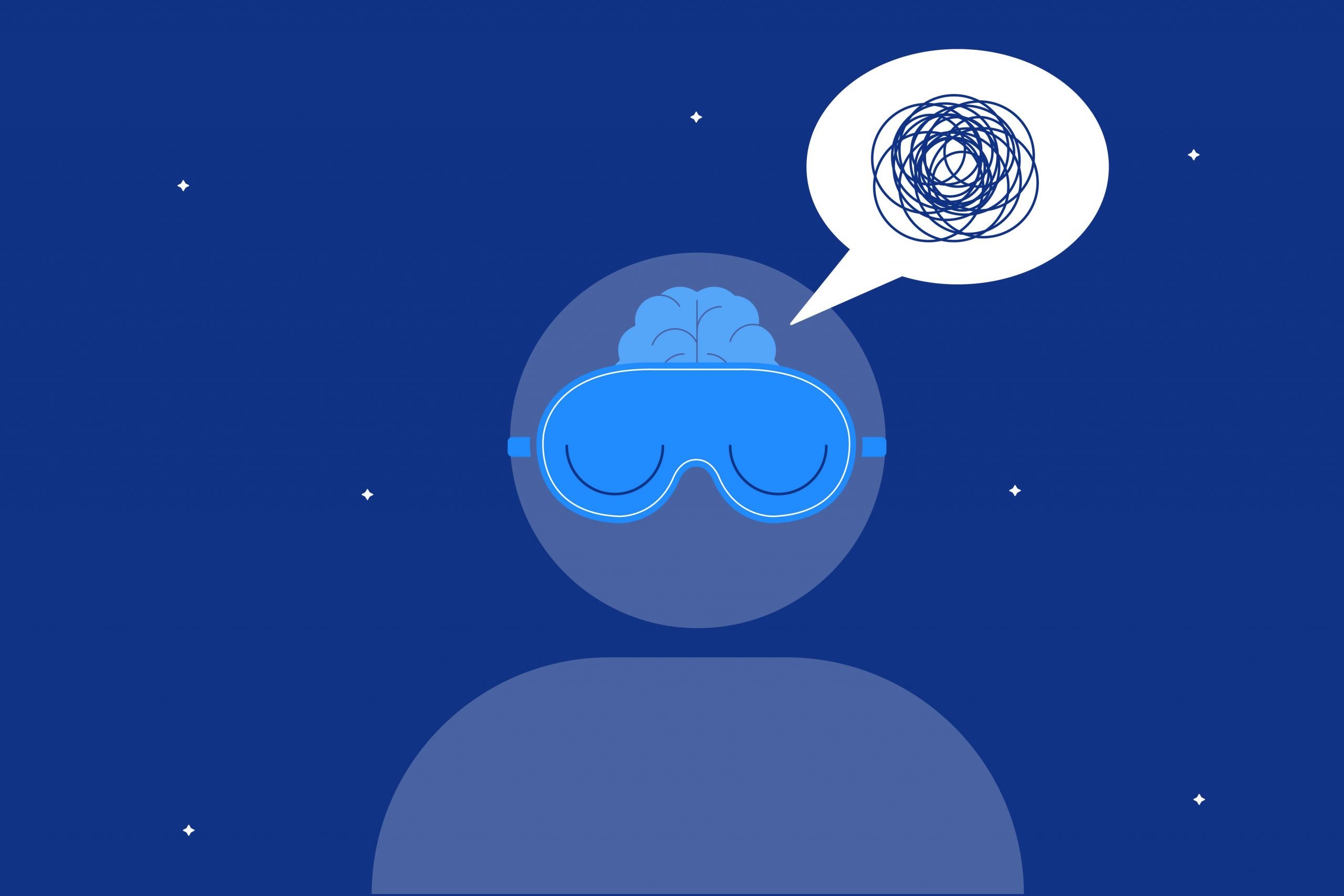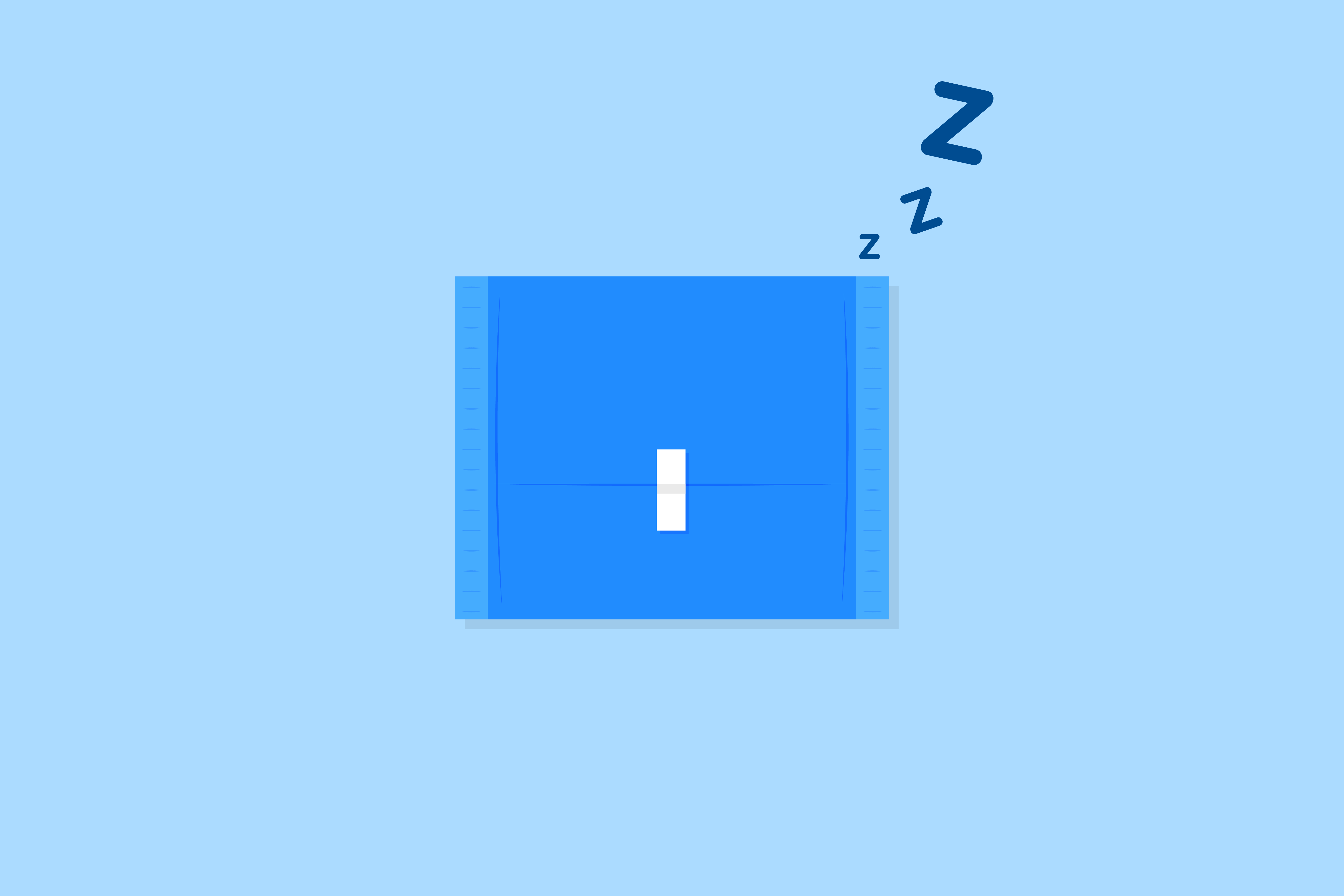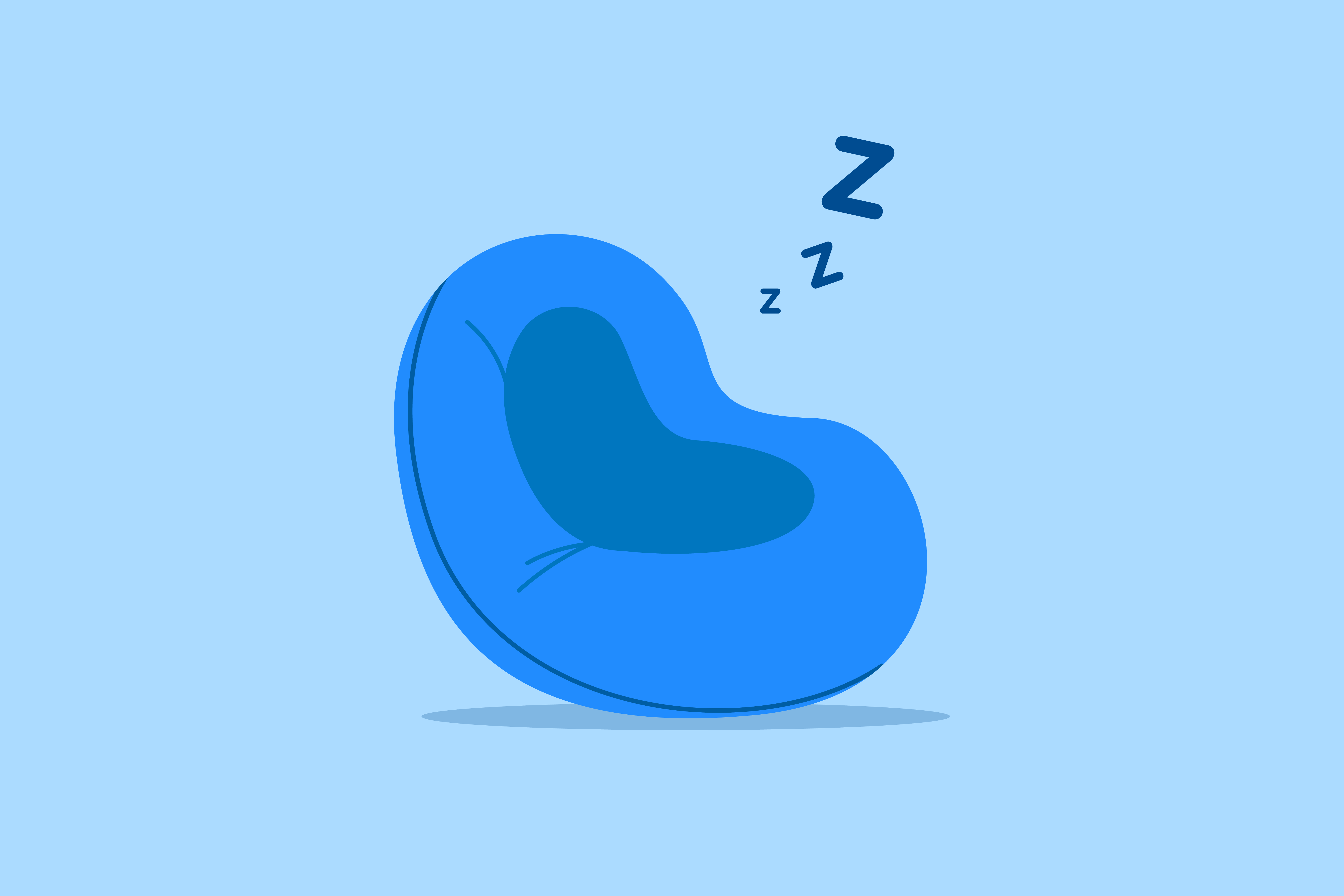Key Takeaways
- Definition and Symptoms: Sleep anxiety, also known as somniphobia, is a condition characterized by intense fear, stress, or worry about going to sleep. People with sleep anxiety often experience both emotional and physical symptoms, including anxiety when thinking about sleep, panic attacks, restlessness, irritability, nausea, difficulty breathing, and an unrelenting sense of impending danger or doom.
- Possible Causes: While the exact cause of sleep anxiety is not fully understood, it is often associated with factors such as sleep disorders, traumatic experiences, nightmares, or a fear of death. Conditions like sleepwalking, PTSD, and night terrors can contribute to the development of sleep anxiety, as individuals may try to avoid sleep to prevent experiencing distressing symptoms or events during the night.
- Treatment Options: Treatment for sleep anxiety may include improvements to sleep hygiene, maintaining a relaxing bedtime routine, and keeping a sleep diary to track sleep-related behaviors. Cognitive-behavioral therapy and exposure therapy are effective approaches that can help individuals address and overcome their sleep anxiety. Medication, such as anti-anxiety drugs or sedatives, may be prescribed in some cases.
For some people, the end of another day sparks nothing but fear in their hearts and minds. Instead of winding down and settling into a comfy bed for a good night’s sleep, they’re gripped by anxiety at the mere thought of falling asleep.
Night after night, they are plagued by an unyielding sense of impending doom. Pair that with panic attacks and physical symptoms like nausea and difficulty breathing; it’s not hard to see why sleep doesn’t come easy.
Sleep is vital to our overall health and well-being, and prolonged sleep deprivation can be detrimental. Undoubtedly, those who deal with sleep anxiety want answers, and they want them fast.
Somniphobia isn’t an official clinical term and is not used in sleep science. However, sleep anxiety is real for many people, but with improved sleep hygiene and behavioral therapy, they can find a way forward.
In this article, we take a closer look at sleep anxiety, its causes, and what you can do if sleep anxiety plagues your ability to get some shut-eye.
What is Sleep Anxiety?
Essentially, sleep anixety is the stress, fear, or worry about going to sleep. For those with sleep anxiety, the very thought of sleeping can trigger an intense and irrational emotional and physical response. Sleep anxiety may also collequially known as somniphobia, hypnophobia, cliniphobia, or sleep dread.
People with sleep anxiety Verified Source Cleveland Clinic Ranked #2 hospital by U.S. News & World Report and one of the largest academic medical centers in America. The Cleveland Clinic serves patients from all over the world. View source may think that something terrible will happen to them while they’re sleeping. They may do what they can to stay awake and alert in order to avoid what they feel is a certainty.Sleep anxiety can lead to sleep deprivation, which can profoundly affect those who suffer from it. Over time sleep deprivation can lead to Verified Source National Library of Medicine (NIH) World’s largest medical library, making biomedical data and information more accessible. View source a host of mental, emotional, and physical issues with one’s mental health.
What Causes Sleep Anxiety?
While researchers have yet to determine the exact cause, it appears that sleep disorders could have a heavy hand in triggering sleep anxiety. The working theory is that sleep disorders and the symptoms that often accompany them lead to sleep dread.
In anticipation of uncomfortable or distressing symptoms, the person tries to avoid sleep altogether, so they don’t have to deal with them. Ahead we take a look at some conditions and sleep disorders that can cause sleep anxiety.
Sleepwalking
Sleepwalking is a common trigger for sleep anxiety. Very often, the individual is so worried that they’ll do something embarrassing or dangerous while they’re sleepwalking that they’re afraid to go to sleep in the first place. In their mind, staying awake and avoiding sleep altogether is the only way to ensure their safety or the safety of their loved ones.
PTSD
Research shows that people with PTSD tend to avoid sleep for myriad reasons. One study found Verified Source National Library of Medicine (NIH) World’s largest medical library, making biomedical data and information more accessible. View source that nightmares are a contributing factor to sleep anxiety for those with PTSD, while another study found that sleep anxiety is closely related to nightmares that replicate traumatic experiences. Yet another study Verified Source National Library of Medicine (NIH) World’s largest medical library, making biomedical data and information more accessible. View source found that’s sleep anxiety in PTSD patients was closely tied to a feeling of a loss of vigilance.
Fear of Death
For some people, sleep and death are uncomfortably similar. So much so that it leads them to avoid sleeping as much as possible. (The fact that death is also known as “the big sleep” probably doesn’t do anyone any favors either.)
Interestingly, one study found that the link between death anxiety and bedtime procrastination was stronger in men than in women. In addition to a fear of death, it would appear that all types of fear, whether it’s fear over personal safety, fire, or natural disaster, can play a role in triggering sleep anxiety.
Nightmares or Night Terrors
Like sleep paralysis, bad or scary experiences at night like nightmares or night terrors can trigger sleep anxiety, often nightmares related Verified Source National Library of Medicine (NIH) World’s largest medical library, making biomedical data and information more accessible. View source to PTSD. Verified Source National Library of Medicine (NIH) World’s largest medical library, making biomedical data and information more accessible. View source The worry over having nightmares or night terrors is enough to make some people worry about falling asleep and even try to avoid it.
Signs and Symptoms
Like anxiety itself, somniphobia or sleep anxiety comes with a mix of mental and emotional symptoms as well as physical symptoms.
Mental/emotional symptoms of somniphobia include:
- Anxiety when thinking of sleep
- Avoiding sleep
- Panic attacks
- Restlessness
- Irritability
- An unrelenting sense of impending danger or doom
Physical symptoms of somniphobia include:
- Nausea
- Digestive issues
- Daytime sleepiness/Fatigue
- Sweating
- Difficulty breathing/Hyperventilation
- Increased heart rate
- Mood swings
What’s the Difference Between Somniphobia and Insomnia?
While somniphobia and insomnia are similar, with individuals struggling to fall asleep when they’re tired, they are not the same, nor can the terms be used interchangeably. Insomnia is clinically recognized as a disorder, but somniphobia is not, for starters.
How they would be classified is also different. See, phobias are a type of anxiety disorder. Verified Source National Library of Medicine (NIH) World’s largest medical library, making biomedical data and information more accessible. View source Insomnia, on the other hand, is a sleep disorder where the individual cannot fall asleep or stay asleep.
What’s the Treatment for Sleep Anxiety?
While changes to your sleep hygiene can be helpful, there are also several treatment options for somniphobia, including cognitive behavioral therapy and exposure therapy. Here’s a closer look:
Improvements to Sleep Hygiene
Like with most sleep-related issues, sleep hygiene can make a big difference in your quantity and quality of sleep. If you’re dealing with sleep anxiety, think about making changes like:
- Maintaining a relaxing bedtime routine
- Cutting down on the amount of time spent on electronic devices, and therefore blue light exposure, before bed
- Optimizing your sleep environment by keeping it cool, dark, and quiet
- Maintaining a consistent sleep schedule
- Limiting the use of your bed to sleep only
Keep a Sleep Diary
Even a cursory internet search will reveal the myriad benefits of journaling. Verified Source National Library of Medicine (NIH) World’s largest medical library, making biomedical data and information more accessible. View source Keeping a sleep diary is really no different. Just as their name implies, sleep diaries are really just logs of your sleep-related behavior.
They typically include what time you go to bed, what time you wake up, whether you had difficulty falling asleep, and your perceived sleep quality, among other things. While sleep diaries may help you see things about your sleep that you were not consciously aware of, they can also be quite helpful to your doctor should you choose to see one regarding your sleep anxiety.
It can be difficult to recall small details when you’re sitting in a doctor’s office, but an actual log of your activity can be an invaluable tool to help them make a definitive diagnosis. Sleep diaries may even be part of a home sleep study, or at least a needed precursor.
Cognitive Behavioral Therapy
Research has shown Verified Source National Library of Medicine (NIH) World’s largest medical library, making biomedical data and information more accessible. View source that cognitive-behavioral therapy can be an effective treatment for a range of mental health disorders, including anxiety disorders. With this type of psychotherapy, a therapist will work with you to identify and change negative thought patterns and unwanted behaviors.Not only does cognitive-behavioral therapy teach you to recognize how your thoughts and beliefs about sleep lead to anxiety, but it also arms you with the necessary tools to take back control and lessen its impact on you.
Exposure Therapy
In some cases, cognitive behavioral therapy may include exposure therapy. Exposure disorder Verified Source National Library of Medicine (NIH) World’s largest medical library, making biomedical data and information more accessible. View source is a type of treatment that encourages patients to confront their fears. This type of consistent exposure aims to reduce the person’s negative reactions to those fears.
Exposure therapy for somniphobia may include:
- Assorted relaxation techniques
- Encouraging the patient to imagine what a good nights sleep might feel like
- Taking brief naps with someone trusted keeping watch
- Sleeping in a clinical environment with a sleep tech keeping watch
Frequently Asked Questions
What are the causes of somniphobia?
Somniophobia can be caused by a number of factors, including past traumatic experiences, anxiety, or depression. It can also be triggered by other sleep disorders, such as sleep apnea or insomnia. Risk factors for somniophobia include a family history of anxiety or sleep disorders, high levels of stress, or a history of traumatic experiences.
What are some common treatments for somniphobia?
Therapy and medication are among many treatment options for somniphobia. Cognitive-behavioral therapy (CBT) can help you change negative thought patterns and behaviors that contribute to your fear of sleep. A therapist may teach their client to use biofeedback to relax their muscles and breathing for easier sleep.
Prescribing anti-anxiety drugs or sedatives can also help manage somniphobia. How effective these treatments are varies person by person.
How can cognitive-behavioral therapy help with somniphobia?
CBT helps you identify and change negative thoughts and behaviors that contribute to your fear of sleep. People who attend such therapy learn relaxation techniques, such as deep breathing and biofeedback, to lessen discomfort and anxiety about going to bed. CBT usually takes several sessions to be effective but can be highly effective.
Are there any medications that can be used to treat somniphobia?
Anti-anxiety drugs or sedatives may be prescribed to treat somniophobia. However, these medications are typically a short-term solution and are not intended for long-term use; they may also have serious side effects. People with somniphobia will likely have to try CBT to manage their phobia long term.
What lifestyle changes can help overcome somniphobia and improve sleep?
Recommended lifestyle changes include creating a regular sleep schedule, avoiding caffeine before bedtime, and engaging in relaxation techniques such as deep breathing exercises.
It’s also important to create a comfortable sleep environment. Make sure a comfortable mattress, pillows, and a cool, dark, and quiet room.
Conclusion
Sleep anxiety or somniphobia is a fear or worry about going to sleep. Those who have sleep anxiety often have an intense physical and emotional reaction to the very thought of sleeping.
The symptoms of somniphobia include panic attacks, increased heart rate, nausea, difficulty breathing, and a sense of impending doom. Researchers have yet to pinpoint the exact cause of somniphobia, but working theories link it to sleep disorders. PTSD, and a fear of death.
Treatments for sleep anxiety include improved sleep hygiene, cognitive-behavioral therapy, and exposure therapy. Talking with your doctor can help you formulate strategies for calming anxiety at night for sleep.
About the author
Sharon Brandwein is a Certified Sleep Science Coach and freelance writer with a focus on beauty, lifestyle, and sleep content. Her work has been featured on ABC News, USA Today, and Forbes, demonstrating her ability to deliver engaging and informative articles. When she's not writing, Sharon enjoys curating a wardrobe for her puppy, showcasing her eye for style and detail.
View all posts





